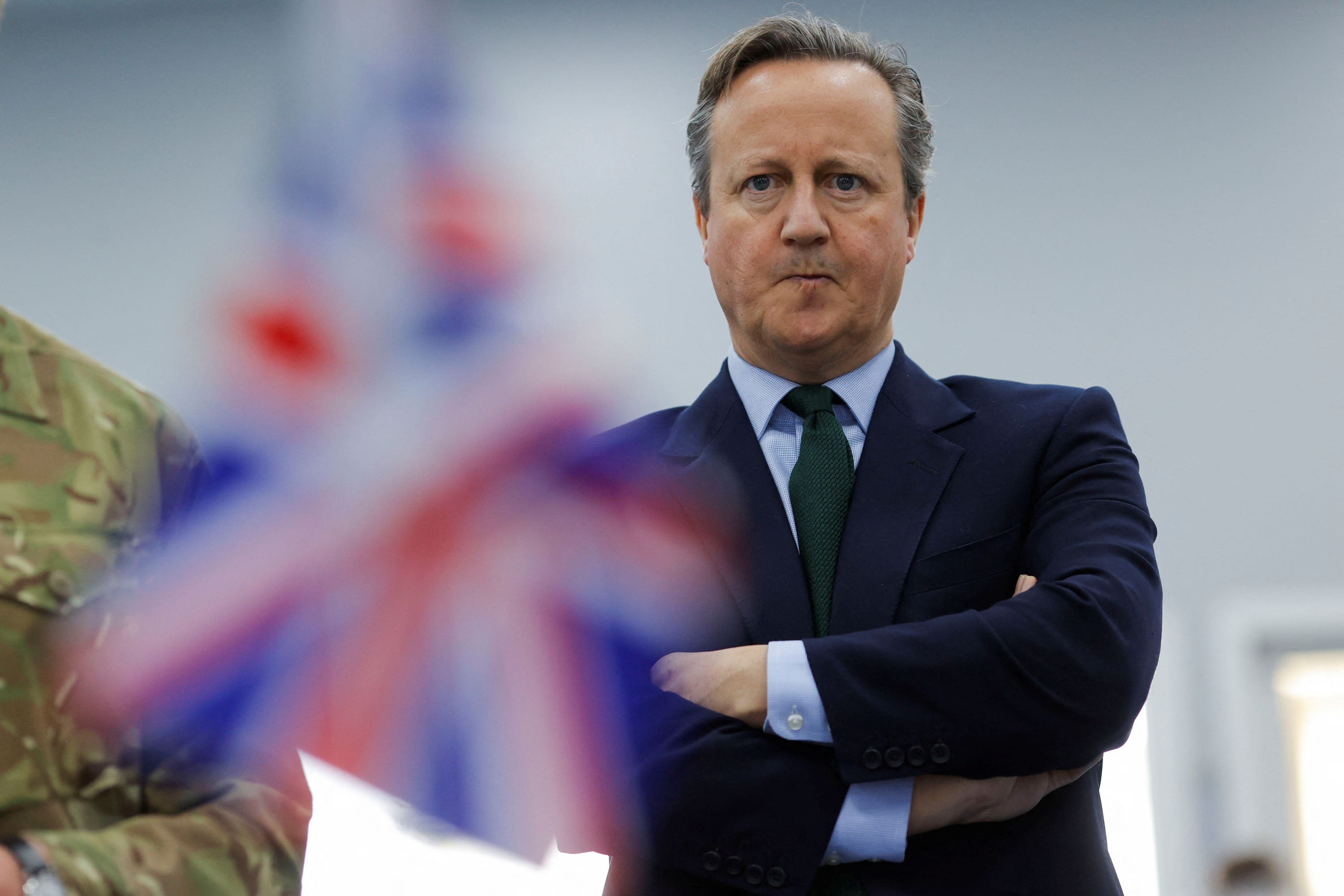Cameron’s plan to tackle Houthis is little more than an expensive illusion
Using $2m missiles to fend off $15,000 drones is not an economically viable long-term strategy, writes Mark Almond. But nevertheless, world trade must be secured somehow


Many anti-war protestors in London and US cities carried banners denouncing the Anglo-American airstrikes on the Houthis in Yemen, who have effectively blocked the route to the Suez Canal since late November.
Opponents of George Bush and Tony Blair’s wars two decades ago chanted “No war for oil.” Now demonstrators decry military action to promote unhindered world trade. Even China and Russia did not veto the UN Security Council resolution demanding the Houthis cease their strikes on shipping, but the protestors deny any public interest in stopping such piracy.
There is now looming inflation and actual shortages of everyday items, from fuel to the iPhone – which recorded selfies of self-righteous protestors. To paraphrase Leon Trotsky, it’s time to remember: you may not be interested in economic warfare, but economic warfare is interested in you.
That said, many of the aggressive pundits advocating air strikes as the go-to solution to the problem are ignoring the acute problems facing military action.
During his Sunday morning blitz of the TV news shows, the new foreign secretary, David Cameron, threatened more air strikes. He seems to have forgotten that his intervention to overthrow the tin pot Gaddafi regime in Libya in 2011 actually took six months, and left Libya in chaos and worse as the launching pad for Islamist terrorist groups to intervene in neighbouring countries to the south in much of the sub-Saharan Sahel.
Yemen in many ways is at the core of a swathe of conflicts from West Africa and Gaza.
Because of the strategic importance of so much world trade passing through the Red Sea, the kind of malign neglect that Westerners, including peaceniks, shamefully showed to Yemen’s third of a million dead in the war after 2015 is no longer viable.
By using a potent mix of Iranian-supplied drones and their own homemade ones to scare off container traffic, the Houthis have made their backing for Hamas in its fight against Israel much more disruptive than the bombastic rhetoric of past Israel-baiters like Saddam Hussein.
But it is important to remember that intervention in Yemen has an inglorious history. Sixty years ago Colonel Nasser, fresh from seeing the British and French off at Suez, had to stage a humiliating retreat from his intervention in today’s Houthi territory in north Yemen. A few years later the British slipped with their tails between their legs from Aden in the south. But it is the debacle of the Saudi-led anti-Houthi intervention nine years ago which should be in American and British planners’ minds.
The Saudis and their UAE allies deployed the latest Anglo-American jets, missiles along with ex-pat “expert” advisers as well as ground troops, but failed to suppress the Houthis despite staggering civilian suffering in their territory.
It is true that the US and British warships in the Red Sea have fended off the Houthi attacks. But this success comes at huge costs.
Two-million-dollar missiles take down drones costing up to $15,000. Soon you’re taking real money out of our defence budgets.
But more alarming is the depletion of Western stocks of defensive missiles.
Ukraine has depended heavily on Nato resupply of them to block Russian airstrikes, but in recent weeks Washington has been redirecting supplies of Patriot missiles to Israel, which still faces missile attacks from Gaza and increasingly Lebanon and even Yemen.
With North Korea staging missile launches as provocations to South Korea and Japan, and China threatening Taiwan, the US Navy and its allies are scattered thin around the world’s vital economic arteries.
Many of the aggressive voices here and in Washington have overlooked how despite bloated defence spending, the Pentagon and MoD have been woefully incapable of maintaining levels of defensive missile systems. The anti-war critics are right to criticise the arms manufacturers for making huge profits, but for the wrong reasons. And the hawks defend them for the wrong reasons. Countless billions of taxpayers’ money has been badly spent. Soon we could see our naval vessels withdrawn for lack of defensive missiles.
Worse still, allied Middle Eastern states, like Djibouti and Oman, but above all Saudi Arabia have signalled their unwillingness to get involved. Of course, the Saudi regime would love to see the Houthis blasted off the map, but they like other pro-Western Arab regimes know that as with Gaza, Westerners bombing Arabs is not popular at home.
Our stretched forces scattered around the globe as well as in the Red Sea face potential flashpoints simmering from the east Asia to Lebanon, just 60 miles from the RAF bombing base in Cyprus. Washington and London have bitten off a lot in Yemen.
It is a problem from hell, but not one that can now be shied away from without other huge costs. Washington promises “No boots on the ground” but that slogan provides aid and comfort to the Houthis firing from behind the Yemeni coast. Who is willing to pay the price of securing world trade?
Mark Almond is director of the Crisis Research Institute, Oxford






Join our commenting forum
Join thought-provoking conversations, follow other Independent readers and see their replies
Comments